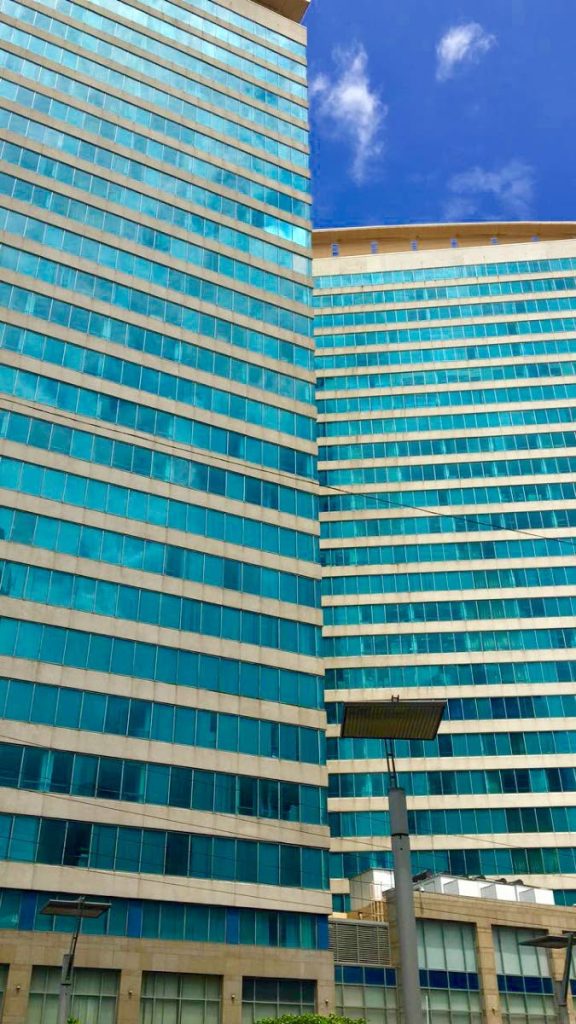Civil court relocation to POS waterfront delayed

THE JUDICIARY may have to wait a little longer before it relocates its civil courts into the 166,000 square feet of usable space at Tower D of the International Waterfront Towers.
It was expected that the move would have taken place in May, but the coronavirus pandemic locked the country down.
Like everything else, the Judiciary’s move has also been delayed but it assures the project is moving forward.
No definitive date has been given for the move since TT remains on lockdown until May 15, and the reopening of the country is likely to be done in phases.
In March, Prime Minister Dr Rowley told the Parliament the space it once occupied at the Waterfront Towers was to be used by the Judiciary as part of government’s crime-fighting, crime suppression, and acceleration of civil and criminal justice proceedings.
He said tenders for the outfitting of the space released by the Parliament at Tower D closed in February and were expected to take 12 weeks to complete.
“It is anticipated that by May 2020, the civil courts of the Judiciary will commence occupying Tower D,” the prime minister told the Parliament.
At Tower D, 32 chambers for judges and masters were being outfitted, and the prime minister revealed that the move of the civil courts will also free up for use at the Hall of Justice, 40 courtrooms, 24 hearing rooms, and five mediation rooms.
Rowley said as part of the expansion of the judicial system, Cabinet had approved 357 new job positions to populate the criminal division to expand its reach and effectiveness at the Hall of Justice.
The Judiciary is expected to occupy the nine floors at Tower D.
Also expected when the move took place was the capability to hold court by video-conferencing and virtual courts.
In his opening address for the 2019/2020 law term, Chief Justice Ivor Archie spoke about the introduction of new technology, including virtual courts.
The novel coronavirus pandemic proved to be the vehicle to push the technological changes forward in the courts.
In response to questions from Sunday Newsday, the Judiciary said the technological advances was always part of the Judiciary’s plan to modernise the courts and the judicial system.
It added that the video-conferencing and virtual court hearings will continue after the covid19 restrictions are lifted and the court “reopens” to its public.
Also expected to continue will be the e-filing system implemented for the courts at all levels.
In the near future, the Judiciary said it also intends to continue with its e-strategy and e-initiatives. These include the new automated case management information system, TT.JIM, for civil, probate, and appeals. It also includes further development of technology tools for litigants and the expansion of e-payments and e-probate capabilities.
The Judiciary said with some of the initiatives already rolled-out in some measure for the covid19 restriction period, the feedback from the public has been good, particularly the CourtPay system for maintenance.
“Today, in the midst of this covid19 pandemic that has brought many services to a halt across the world, CourtPay has again proven to be the bedrock upon which our customers can rely.
“With safety measures in place and stay-at-home orders in effect, customers do not have to go into buses, maxis or taxis to stand in line to pay or receive maintenance, but they can do so from the safety and comfort of their homes,” the Judiciary’s statement said.


Comments
"Civil court relocation to POS waterfront delayed"